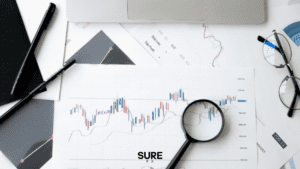
Forex trading (foreign exchange or FX)
F orex trading (foreign exchange or FX) involves buying one currency while simultaneously selling another, with the goal of making a profit. As the largest financial market in the world, forex operates around the clock, across global time zones, and is active 24 hours a day throughout the trading week. In 2022, global daily trading volume in the forex market reached $7.5 trillion. The emergence of online forex brokers and trading platforms has made it easier for individual traders, including hobbyists, to access the market. Even non-professional traders can improve their strategies through consistent practice and self-analysis. Successful forex traders develop discipline, regularly review their trades, and work to minimize emotional influences like fear and greed. Mastering these skills is essential for any trader. Below are some essential forex trading tips to help traders at all levels, especially forex trading tips for beginners. Identifying Your Trading Style Before you begin trading, it’s crucial to define your goals and select a trading method that supports them. There are three primary trading styles in forex: Day Trading: Involves opening and closing positions within the same trading day, with no trades left open overnight. Swing Trading: Traders hold positions for several days or weeks, aiming to capture short- to medium-term price moves. Position Trading: A long-term strategy where traders buy and hold positions, expecting the value of the asset to appreciate over time. Each trading style carries its own risk profile, and it’s important to choose one that aligns with your personality, comfort level, and financial goals. This is one of the first forex trading tips for beginners: choose a trading style that fits your comfort level and financial goals. Developing a Trading Methodology Establish a consistent and adaptable strategy before entering the market. Decide on the types of information and tools you will rely on to make trading decisions, whether that involves: Monitoring economic fundamentals Keeping track of global news Using technical analysis exclusively Your methodology should evolve as market conditions change, but consistency is key to building long-term success. A simple forex trading strategy that combines technical analysis with solid risk management is a great starting point for new traders. Determining Entry and Exit Points Experienced traders know the importance of aligning different timeframes when entering and exiting trades. For instance, if a weekly chart signals a buying opportunity, wait for confirmation from a shorter timeframe like a daily chart before acting. By synchronizing your charts, you can improve the timing of your trades. This is an essential forex trading tip for both beginners and experienced traders. Calculating Expectancy Expectancy is a formula that helps determine how reliable your trading strategy is. It compares the profits from winning trades to the losses from losing trades, giving you an overall view of your system’s effectiveness. To calculate expectancy, use the following formula: Expectancy = (% Wins * Average Win) – (% Losses * Average Loss) For example, if you have a 60% win rate and an average win of $400, with a 40% loss rate and an average loss of $300, your expectancy would be: Expectancy = (0.60 * $400) – (0.40 * $300) = $120 This means that on average, you can expect to make $120 per trade using your current strategy. This is one of the best forex trading tips to ensure that your methodology is working. Managing Risk Forex trading involves significant risk, so it’s vital to trade only with capital that you can afford to lose. Risk management strategies, such as using stop-loss orders, are essential to protect against substantial losses. Experienced traders maintain a long-term perspective and avoid reacting impulsively to short-term fluctuations. Forex trading tips for managing risk include setting clear risk limits and sticking to them, regardless of market volatility. Always remember that controlling risk is just as important as aiming for profits. Risk-Reward Ratio Before making a trade, assess the potential risk and reward. The risk-reward ratio shows the proportion between the potential loss and the potential gain of a trade. For example, if you are willing to risk $200 to potentially make $600, the risk-reward ratio would be 1:3. This ratio helps traders evaluate whether the potential gain justifies the level of risk they are willing to take. Using Stop-Loss Orders Stop-loss orders are an essential tool in managing risk, as they automatically exit a position once a predetermined price level is reached. This helps prevent large losses from adverse market movements. Setting appropriate stop-loss levels and maintaining a margin for error (e.g., 15-20 pips) can help reduce the chance of being stopped out prematurely. Weekend Analysis Use the weekends, when the markets are closed, to review weekly charts and look for emerging patterns or potential news events that could impact the market. This analysis helps you plan for the upcoming trading week with a clear strategy, based on rational, objective observations rather than emotional reactions. Advice for forex traders: Weekend analysis can provide a calm, structured approach to understanding market trends. Keep a Printed Record Maintaining a printed record of your trades is an excellent way to improve as a trader. Print out charts, write down your reasons for each trade, and note any emotional factors that influenced your decisions. Did you panic or act impulsively? This practice helps develop mental discipline, ensuring that future decisions align with your strategy rather than emotions. The Bottom Line The forex market is the world’s largest financial market, operating 24 hours a day, five days a week, with online brokers making it accessible to traders worldwide. By developing a solid trading methodology, managing risk, and minimizing emotional decision-making, traders can improve their chances of success. However, forex trading remains a high-risk activity, and even experienced traders must carefully evaluate their systems and adjust their strategies as necessary. Keep these forex trading tips in mind to improve your trading results and minimize risk.




